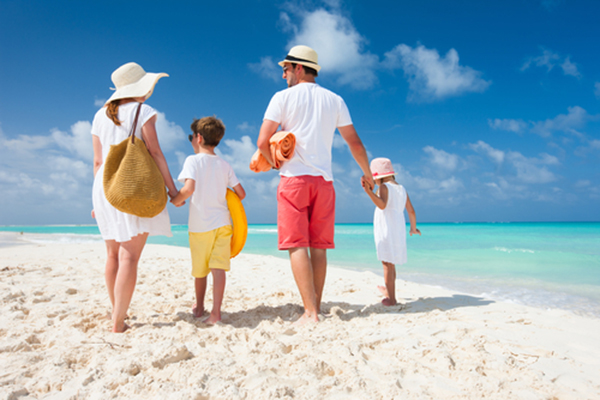It’s easy to get caught up in the myth that you have to spend thousands of dollars to have a fun and memorable vacation. But the truth is that there’s fun to be had at every price point – even if you’re on a budget.
Let’s start by acknowledging a simple yet useful fact: Vacationing on a budget means different things to different people. For one family, it might means spending less than $1,000. For another family, it might mean spending less than $10,000. So rather than provide you with specific itineraries and recommendations for accommodations, we’re going to touch on the basics of vacationing on a budget – the underlying principles of cost-conscious traveling, if you will.
Here are some tips that we believe are important and relevant, no matter how many zeroes are attached to your vacation budget:
- Plan Ahead or Wait Last Minute
There are a couple of different schools of thought with booking things like flights, accommodations, and tours.
The first option is to plan ahead and book your trip months in advance, which allows you to secure deals that may be 20-30 percent off the standard pricing that will be offered in the weeks leading up to the travel date.
The second option – which requires you to be more flexible and open-minded – is to wait until just a few days or weeks before the travel date. This allows you to gobble up leftover inventory that’s being steeply discounted to avoid losses.
Most families need to plan ahead and have a little bit of predictability – so planning ahead and booking trips way in advance is usually the preferred course of action. However, it all depends on your circumstances and limitations.
- Travel During Shoulder Seasons
Every travel destination has its high seasons and low seasons. High seasons are when everyone visits. (And there’s typically a reason for this – like good weather, seasonal activities, no school, etc.) Low seasons are when the destination shuts down.
Naturally, high travel seasons are expensive. Low seasons can be dirt cheap, but you’ll also find lots of closures and you won’t get the same experience that you typically would if you traveled during a normal season. Keeping this in mind, the best time to travel – from a value perspective – is during the shoulder seasons.
According to TripSavvy, “Shoulder season is the period in between a destination’s low and high seasons of tourism, making prices cheaper for hotels and airfare and crowds smaller at popular attractions.”
In the United States, for example, typical shoulder seasons include late fall (after school has started) and very early spring (before Spring Break). But this can be location specific. For example, a ski resort’s shoulder season will be different than a beach resort’s shoulder season.
- Take an RV Trip
Have you ever considered taking an RV trip with your family? Well, perhaps you should.
Allstar Coaches crunched the numbers and found that a family of six can rent a luxury RV for seven days/six nights for less than $2,000! (A similar out of state trip could easily cost three-to-four-times that amount when staying in hotels, purchasing airfare, etc.)
- Enjoy Free and Low-Cost Experiences
Whether you’re traveling to Montana or New York City, there are plenty of free and low-cost experiences for travelers. This includes guided walking tours, museums, national and state parks, etc. Plan to include these experiences and you can save some serious money (while simultaneously enhancing the trip and making it more fun).
- Travel in Groups
If you have a large group of friends, consider coordinating everyone’s schedules so you can travel together. Doing so may allow you to secure group discount pricing.
For example, many hotels and attractions offer up to 15 percent discounts if you have a group of at least 10 people. Certain airlines will even give you a 5 to 10 percent discount on their published fares (though you’ll probably have to call into their reservation center to access these lower rates).
Focus on the Experience
We live in a world where people often equate happiness and satisfaction to consumer products and purchases. But when you look at the big picture, it quickly becomes apparent that happiness isn’t rooted in physical things. Instead, it’s tied to our experiences.
The great thing about traveling is that it allows you to experience the world firsthand. And if you keep these tips in the back of your mind, it doesn’t have to drain your bank account. Be smart with how you plan your next trip and don’t let your budget hold you back from seeing the world for what it truly is: A beautiful frontier that’s ripe for firsthand exploration!

Leave a Reply